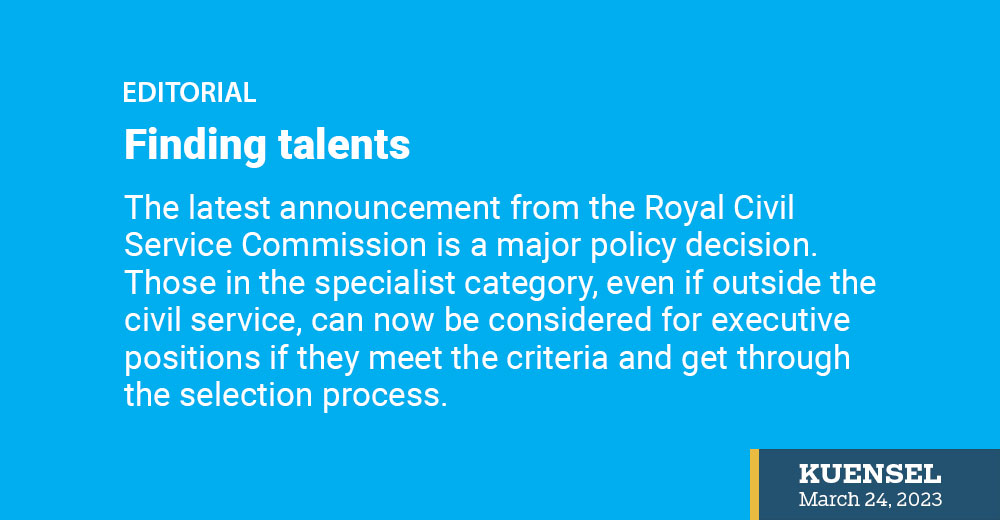The latest announcement from the Royal Civil Service Commission is a major policy decision. Those in the specialist category, even if outside the civil service, can now be considered for executive positions if they meet the criteria and get through the selection process.
Such dynamism in the civil service can only be healthy, especially when there is an exodus of civil servants, affecting the people directly. Times are changing and it is only wise to keep pace with the changes.
A job in the civil service is not the most sought after unlike in the past. The public and private sectors have developed, offer better opportunities and perks and are more flexible than the civil service. With the reforms and the austerity measures in the civil service, the opportunities beyond the civil service and the country has led to many, including those at senior posts, to resign and leave the country.
Today, those who have remained behind complain of being overburdened as they have to stand in for those who have left. Many are mulling to leave because of work pressure.
Skilled people or specialists from the corporate or private sectors could fill the void if opportunities and remunerations are better. The government needs them – doctors, teachers, engineers, architects, and many more. Getting them into the civil service would be a boon.
They will not only bring the expertise and the practical knowledge, but experience and skills of working outside the civil service. In Bhutan, the rest of the sectors work closely with or around the civil service.
A Class A contractor who fulfils the requirement to be an executive in the civil service could be more practical in doing a lot of things than a civil servant who has just risen through the civil service ranks. For instance, he or she would know better how to prevent a consortium of contractors or printers from making the most of a government job. Likewise, a medical doctor, as a government director or director general could prioritise the scarce resources better, perhaps by spending more on preventive programmes over treatment.
However, the big question, like in all the sectors, is the shortage of people. It is not only civil servants leaving their jobs for better opportunities abroad. Specialists in the corporate and private sectors are among the thousands who are leaving the country.
Companies under Druk Holding and Investments pay their employees well. Even so, employees are leaving from these companies.
The current trend is that no job here pays better than an odd job in Australia and some place else. A pay commission has been formed and consultations started to revise the civil service salary. If RCSC can make the civil service attractive and can find interested people, it will be able to expand the talent pool.


